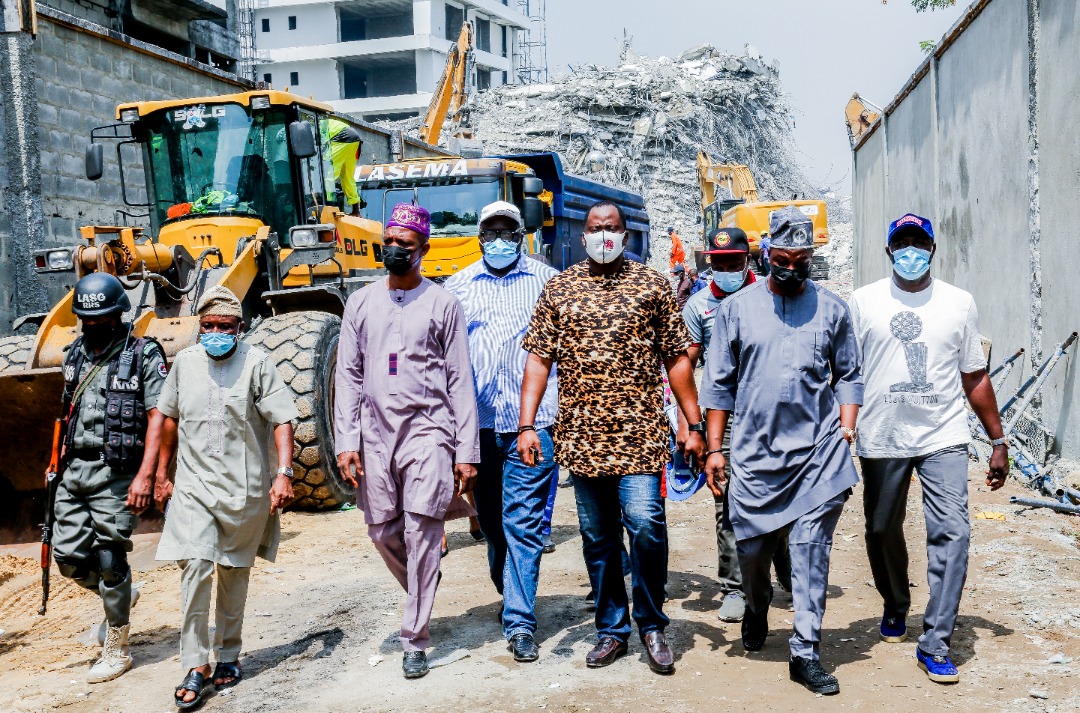The collapse of the Ikoyi building in Lagos, proves that human rights starts with infrastructure
The collapse of the Ikoyi building in Lagos, proves that human rights starts with infrastructure
About a week ago, a multi-storey building collapsed on Gerrard Road, in the Ikoyi area of Lagos city, Nigeria. The collapse left many injured and a significant amount of people announced missing or dead. According to Sahara Reporters, about 42 people died as a result – including the owner of the building, Femi Osibona.
Historically, the neighbourhood of Ikoyi has long been associated with elitism. During colonial rule in Nigeria, Lagos was a residential haven for the white expatriate community. In post-colonial Nigeria, affluent Nigerians filled that vacuum in the more exclusive parts.
Apartments in the high-rise building had already been sold and its construction was mostly complete. It had been marketed as a desirable, luxury property, situated in a neighbourhood associated with exclusivity and affluence.
But the project had been fraught with issues. According to a letter obtained by multiple news sources, including the BBC, the building was recommended to be no more than 16 stories high. However, construction of the building saw 21 stories being developed, exceeding the recommendation.
Property development in Lagos is not a simplistic matter. The city has historically been grappling with poor infrastructure that cannot keep up with its worsening overpopulation issue. The challenges include inefficient transportation, overwhelmed waste management systems, worn down roads and lack of affordable housing.
Consequently, urban planning and construction reflect the legal challenges of running a sprawling metropolis with wealth inequality. For such an avoidable event to take place, there are structural issues that need to be addressed.
Nevertheless, changes are being made. Lagos governor Sanwo-Olu has suspended the current manager of the Lagos State Building Control Agency. A panel has been arranged to investigate the incident.
However, the victims and their families have not received proper acknowledgement or compensation. The incident also exposes the horror of working conditions for Nigerian contractors. For the workers’ lives and all victims to be lost to a preventable incident is deeply upsetting.
Also, the search and rescue mission was ill-equipped and seemed to lean toward a strategy of bodily extraction rather than life preservation according to the BBC. The rubble had trapped a lot of people requiring extreme urgency for both victims, families and the medical services.
As of the time of reporting, there still remains a number of unnamed, faceless victims, which means current death toll projections may be underestimated, and not reflective of the true scale of the collapse.
Additionally, CNN’s Stephanie Busari covered the story with her team in Lagos, commenting:

The unfolding events serve as a painful reminder that housing security cannot be bought. The bubble afforded to the elites through land and property acquisition, does not guarantee safety. Ultimately, social dysfunction impacts all classes, despite temporary escapism via financial privilege.
Generally, this is not the first of Nigeria’s infrastructural failings and certainly won’t be the last. Nigerian citizens in urban and rural environments not only face the threat of violent crime and state sanctioned violence but also the life-threatening impacts of inadequate infrastructure.
This calamitous tragedy further exposes the national desensitisation and disillusionment that accompanies living in a nation where profits are prioritised at the expense of human rights.
Written By: Funmi Ljadu – a Nigerian-based collage artist and writer. In her work, she enjoys exploring her identity as well as wider socio-political issues she observes in the spaces she’s in. Visit her blog and follower her on Instagram





